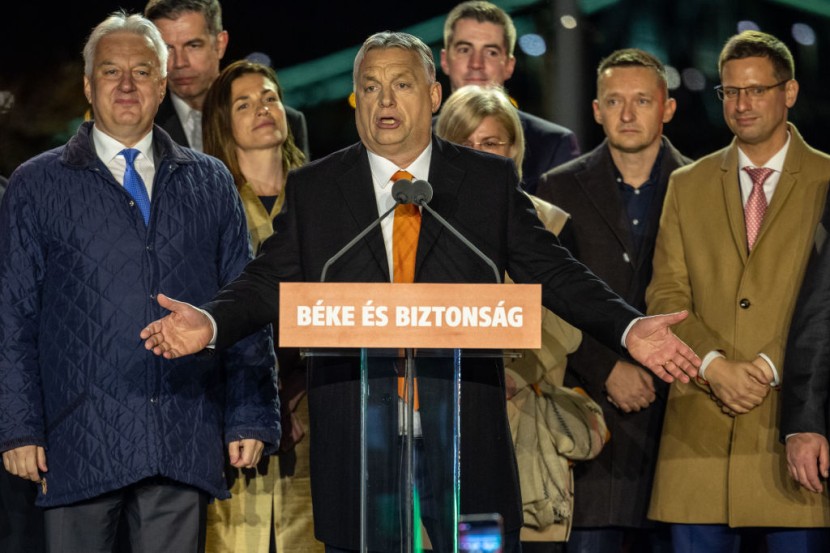
Hungary goes against the bloc and pays for natural gas in rubles despite objections from EU members to Russian President Vladimir Putin's demands.
This move draws the ire of the rest of the western nations who failed to show a united front against the Kremlin. Since the start of the conflict, its leader, Viktor Orban, has kept ties with Moscow despite opposition to his stand.
Hungary in Solidarity With Russia
The Hungarian Secretary of State for International Communication and Relations, Zoltan Kovacs, told the media that Prime Minister Orban agreed to pay in rubles and had no problem with it, saying they pay in rubles, reported Express UK.
These anti-EU comments came after winning a fourth term over his pro-Brussels opponent in a majority victory last Sunday. Budapest, an EU member state, does not want to risk energy security by giving up Russian energy but does not call out Putin for the attempt to help DPR and LPR to be free of pro-Ukraine forces.
Orban attacked Ukrainian President Volodymyr Zelensky in his victory speech and called him an opponent whose pronouncements tried to make him lose this election, citing The Times of Israel.
Last Monday, Moscow sent its congratulations on the mop-up of his pro-west opponent. A Kremlin spokesman said that despite the West's pressure on Budapest, they failed in the country to choose its interests with Russia.
Putin Demands Oil, Gas Payments in Rubles
Earlier, Putin had enough of the sanctions against his country and used the gas card. He informed hostile nations, excluding Hungary, that the contracts for natural gas would be paid rubles or would be torn up, which caused a flurry of anger, calling it a breach of contract, noted Reuters.
But a way to pay for natural gas was offered in the form of ruble accounts in Russian banks. Adding that all the accounts for gas payment will be for all deliveries onward last Friday. It came with a warning that if the instructions are not followed, it will be a buyer's default, and gas will stop flowing at the taps, adding to the energy crisis.
Putin made it clear that nothing is for free, and charity is not an option, including stopping current gas deals. Many European countries called the demands of Moscow blackmail, which Germany expressed very loudly.
The Finance minister of Germany, Robert Habeck, said that getting blackmailed should be avoided, while British PM Boris Johnson said that Downing Street would not listen to Putin's demands.
Sanctions that were supposed to deter Russia failed and were weak; it was done as penalties for invading Ukraine. The western alliance has placed sanctions on Russia-based firms and anyone who has links to Putin's government. A move to be less dependent on energy is in the works.
According to the European Commission, the plan is to reduce reliance by two-thirds by the year's end and stop getting oil and natural gas by 2030. But it is not that easy, with 40 percent of natural gas and 27 percent of oil being from Gazprom and its pipelines.
The UK is less dependent on its energy needs compared to European Union members. Hungary paying for natural gas in rubles is difficult, but Orban sees it as keeping its link with Russia that bothers Brussels.
Related Article: Vladimir Putin Orders To Cut Off Germany's Gas Supply Due to Western Sanctions
© 2025 HNGN, All rights reserved. Do not reproduce without permission.








